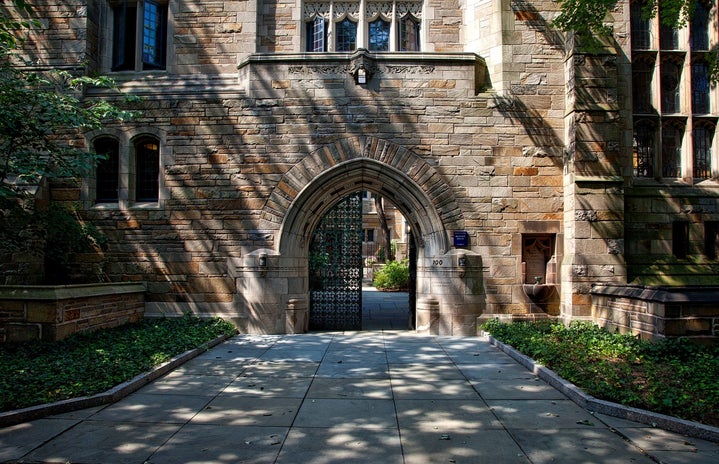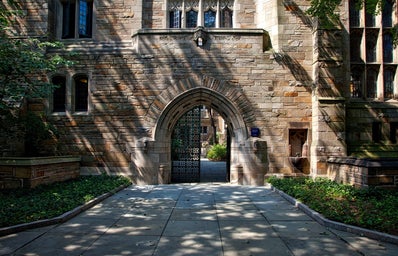My call interrupts Lauren Spier while she is hanging a series of postcards on her apartment wall. It is already riddled with a combination of sorority paraphernalia, maps, and photographs. I am not in any of them, which she does not seem to see as a problem.
“I am your sister,” I protest.
“I don’t have any pictures of you where you are publicly presentable.”
I believe that the real reason I am not there is that I am not cool enough to earn a position. Over the past few years, Lauren Spier has surpassed me in coolness, professionalism, and life experience. At twenty, she studies Music Liberal Arts at Texas Women’s University, is an active member of her sorority, and has already spent time working as a ranger for the National Park Service.
During previous summers, Spier had worked at Girl Scout camps and a day camp. After being bitten by children in this line of work, she decided to look elsewhere for summer employment. Her parents suggested she apply for jobs within the National Park Service.
“Since my parents worked for the Park Service, I’d always been exposed to that kind of work,” Spier said.
“Exposed” is an understatement. Spier lived in Big Bend National Park from the time she was two years old until she was eleven. Big Bend is one of the most remote National Parks in the state of Texas. This isolation from the rest of society provided her with nothing but exposure to rangers going about their lives. Instead of movies, she would watch rangers deliver talks on dinosaur fossils in the area. Instead of going to the grocery store to find ingredients for dinner, she went to Pine Canyon to help find myxomycetes for a scientific research project.
Spier spent the summer of 2018 in Wind Cave National Park in South Dakota, where she served as an interpretive park ranger. Her tasks were centered around visitor experience. While this entailed some administrative work, such as ticket sales and providing maps and directions, it also involved giving cave tours.
Spier would bring a group of tourists within the depths of a cave three times a day. She would herd them downstairs, into elevators, and into dark passageways formed by limestone that has been dissolved by groundwater and fractured over time. It was her job interpret historical and scientific information about the caves to park guests as she shepherded them down a trail.
In addition to knowing factual information, Spier also had to learn how to handle a group of people when something went wrong. During one of her tours, the lights that had been installed by the cave trail became darker as the group walked along. Before panic ensued, Spier calmly told the guests to turn on their cell phone flashlights. Then, she told them that someone had probably forgotten to switch on the lightbox. She later learned that there had been a power outage, plunging the cave into temporary darkness.
When she was not giving tours, Spier would accompany more experienced rangers on caving trips into areas that are off-limits to visitors. A group would squeeze themselves through small crevices to reach historic areas within the 654-foot-deep cave. She describes it as a cross between rock climbing and army crawling. The reward at the end of the claustrophobic’s nightmare? A series of names carved into the wall of the cave by early cave explorers. The Park Service refers to these as historical signatures.
While she did her time as a ranger, Spier lived inside of the park in provided government housing that had been built back in the sixties. While Wind Cave is not quite as isolated as Big Bend, the nearest grocery store was still around an hour away in Rapid City. Spier lived in a space filled with many seasonal workers like herself. They were a different type of co-worker, moving from park to park depending on the season. Being a member of this crowd has made Spier consider using her education in music and history to find a permanent Park Service job in research or interpretive work once she completes college.
“To be exposed to people who genuinely love their jobs is incredibly influential on someone. It proves that you don’t just have to do a because you’re getting paid for it,” Spier said.
Spier believes that the Park Service is a unique organization that not only embraces but is dependent on people of different backgrounds. Rangers are able to teach park visitors and each other through their own personal experiences.
“Being able to work there and bringing in your perspective, you’re not only diversifying the Park Service, you’re expanding your own horizons and knowledge,” Spier said.
Want to keep up with HCBU? Make sure to like us on Facebook, follow us on Instagram, check out our Pinterest board, and read our latest Tweets!


